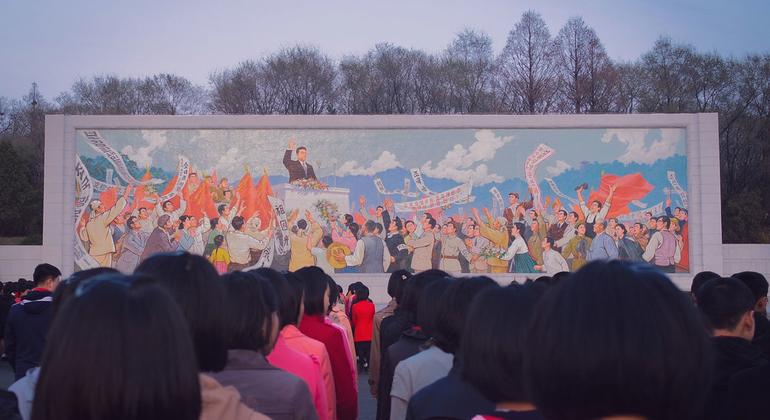North Korea: Forced labor institutionalized and dangerous, UN human rights office warns


In a report based on 183 interviews with victims and witnesses of forced labor who escaped from the DPRK and now live abroad, OHCHR One person was quoted as saying that if they failed to meet their daily work quota, workers would be beaten and have their food rations cut.
“These people are forced to work in intolerable conditions – often in dangerous fields – without pay, “The right to freedom of choice, the ability to leave, protection, medical care, rest time, food and shelter,” said OHCHR spokesperson Liz Throssell.
“They are constantly monitored, often beaten, while women face a constant risk of sexual violence.“ .
The United Nations report on the Democratic People’s Republic of Korea – commonly known as North Korea – identifies six types of forced labour including prison labour, state-assigned work, military service and so-called “Shock Brigades”, where groups are forced to perform “heavy manual labour”, often in construction and agriculture.
The most serious concerns arise in detention facilities, where victims are often forced to work under the threat of physical violence and in inhumane conditions.
The report argues that the widespread use of forced labor in prisons in the DPRK may constitute slavery – a crime against humanity.
The report’s authors concluded that North Koreans are “controlled and exploited through a pervasive and multilayered system of forced labor” that serves the interests of the state rather than the people.
ganged
According to the authors of the OHCHR report, conscripts are required to serve in the military for 10 years or more and are often forced to work in agriculture or construction.
A former nurse at a military hospital who treated soldiers during their mandatory service described their work as “difficult and dangerous, without adequate health and safety measures.” She noted that many soldiers, weak and tired, were malnourished and suffering from tuberculosis.
Conscripts into the “Shock Troops” are often forced to live on the ground for months or years with little or no pay. Women, who are often the primary breadwinners for their families, are particularly affected by these mobilizations, the UN human rights report notes.
Send abroad
The report alleges that North Korea has sent some of its citizens abroad to work and earn foreign currency for the state, taking up to 90 percent of their income.
Once they start working, these North Koreans live “under constant surveillance and their passports were confiscated.…in cramped spaces, with little time to rest and extremely limited ability to communicate with family.”
The institutionalized labor system begins in school, the report notes, with children forced to perform tasks such as cleaning riverbanks or planting trees. “From a young age, you have to be ready to serve,” one witness said.
The UN report called on the DPRK government to “eliminate the use of forced labor and end all forms of slavery”.
The document calls on the international community to investigate and prosecute those suspected of international crimes.
It also calls on the United Nations Security Council to transfer the situation to International Criminal Court (ICC).




